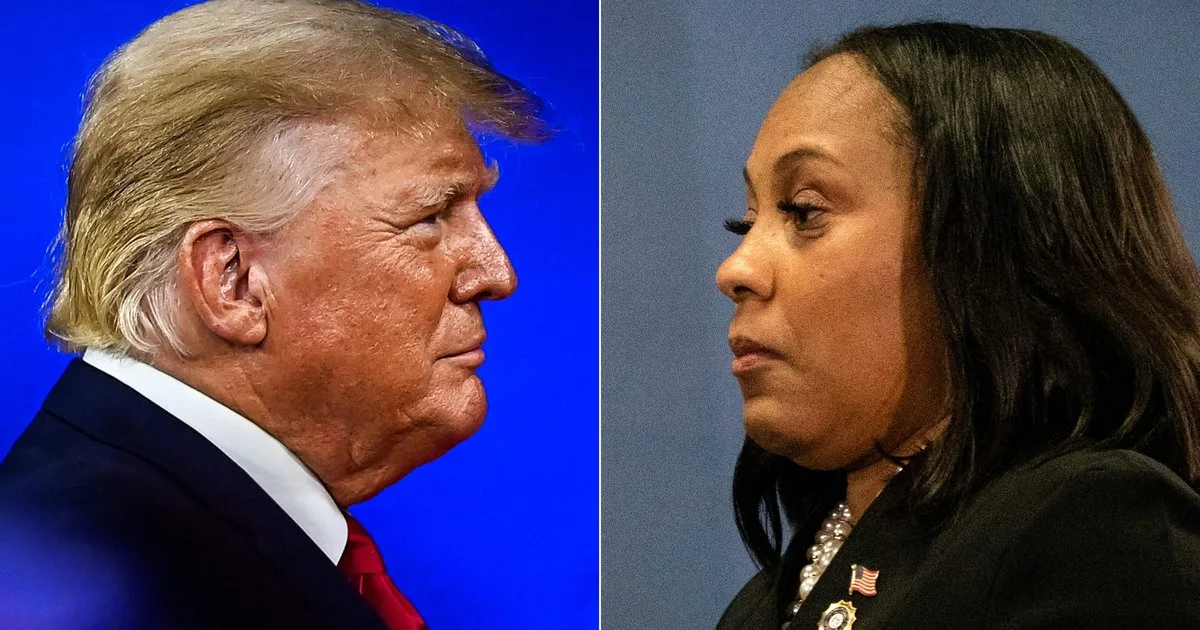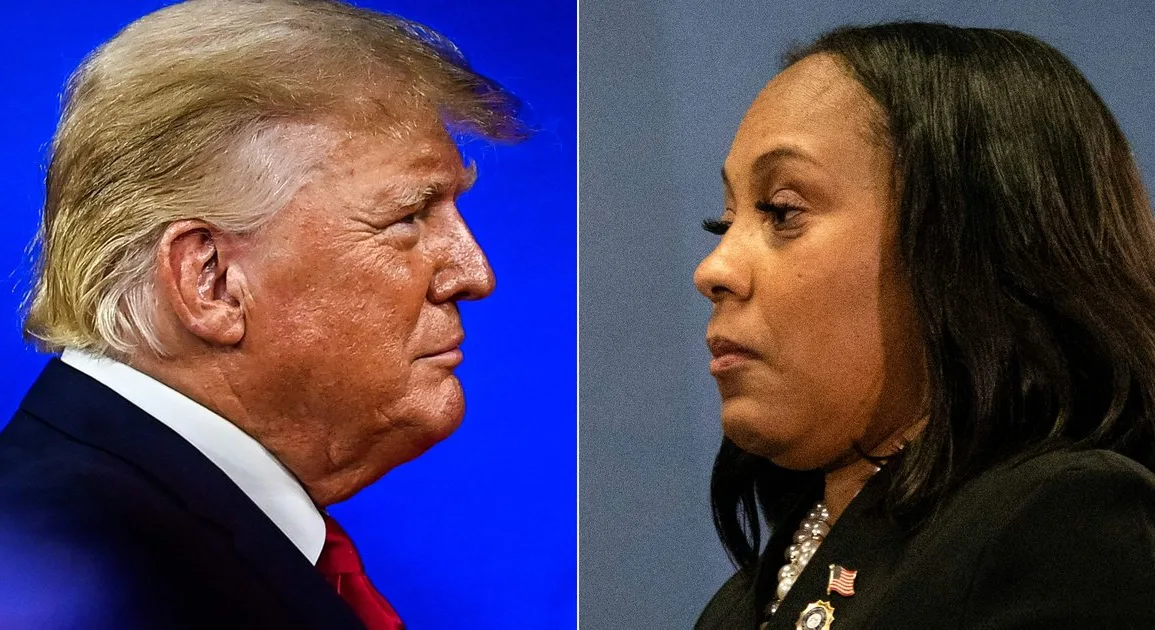
Not so long ago, I thought a Ron DeSantis presidency would be more harmful than a Donald Trump presidency. Demagogue DeSantis struck me (unlike Trump) as competent and calculating in his ruthlessness, even if he lacked charisma. As governor of Florida, he has proved adept at manipulating and politicising the state bureaucracy.
DeSantis has filled key roles with right-wing culture warriors loyal to him, crafted biased reports full of disinformation with the help of right-wing consultants (many of whom share his Catholic faith), and stacked what should be non-partisan bodies to achieve partisan ends, as he did with the the state’s Board of Medicine to achieve a ban on gender-affirming care for minors.
However, as his presidential campaign flags, I find it less and less likely that he would be able to replicate at federal level the damage he’s done to Florida’s state machinery. Don’t get me wrong: a DeSantis presidency would be a disaster for members of marginalised groups including women, African Americans and LGBTIQ people. But I worry that a second Donald Trump presidency could ultimately prove even more destructive. If Trump wins the 2024 election, anything resembling functional democratic politics and the rule of law in US life will be gone at the federal level for the foreseeable future.
It is still early in the campaign season, but Trump’s support among Republican primary voters has risen steadily from around 44% early this year to about 54%, according to FiveThirtyEight’s polling average. Meanwhile, DeSantis’s numbers have fallen dramatically, from about 37% to under 15%. No other Republican contender reaches 10%.
Elite Republicans have faulted DeSantis for a severe lack of social skills – he snubs political allies, stands accused of mistreating former staffers, and lacks personability – and this has clearly cost him. In addition, a Nazi symbol, the Sonnenrad, was recently used in one of his political ads. Simply firing the staffer (Nate Hochman) who created the ad is hardly enough to recover from the overt use of Nazi symbolism. There are clearly many Nazi sympathisers among Republican voters, but those who value respectability know to be quiet about it.
DeSantis is not well liked by Republicans in Congress and, given his poor people skills and unattractive ideological zeal, which makes him come across as a stiff scold, could face resistance if he attempts to stack the federal bureaucracy with loyal cronies. Trump, however, can already count on a rubber stamp from the vast majority of congressional Republicans, who are still scared to criticise him because of the devotion he gets from their voter base.
The fact is that Trump, despite his lack of intelligence and polish, remains the de facto leader of the Republican Party.
But what’s especially troubling about Trump as the likely Republican presidential candidate is the open and brazen contempt that both he and his supporters have for the rule of law. The US establishment seems completely unprepared to deal with the possibility that Trump could take office even if still on trial, or convicted, of serious federal and state crimes. These include conspiring to defraud the US government and obstructing an official proceeding, both in connection with the 6 January insurrection and his attempts to remain in office despite losing the 2020 election.
Brazil’s former president Jair Bolsonaro followed the 6 January playbook when he tried – unsuccessfully – to remain in power after losing the Brazilian election in July 2022. Less than a year later, he was barred, justifiably and sensibly, from running for office until 2030.
This hasn’t happened to Trump, as the United States has no clear mechanism in place for taking such action, which seems like a serious oversight on the part of the founding fathers. The truth is, we’re in uncharted waters with the potential to elect a president facing criminal trials. Here, pundits simply shrug when asked whether a president convicted of a crime can pardon himself, or wring their hands about what a “bad precedent” it ostensibly sets to hold an ex-president accountable for his crimes, because the optics create the impression that the justice system is being weaponised against the political party that is out of power.
Incidentally, it is legally clear that Trump cannot pardon himself for state crimes, and Trump is one of 19 alleged conspirators a grand jury in Georgia charged on Monday night with attempting to overturn the 2020 election results in that state. Should Trump be convicted and sentenced to prison time and yet still elected president, what happens? Since we’re not entirely sure, my guess is that between the feckless Democratic leadership, the illegitimately stacked, right-wing Supreme Court, and the authoritarian Republicans, his sentence will be suspended so that he can go back to work in Washington.
While it will thus be crucial for the future of American democracy to reelect Biden, the privileged pundits’ concerns about the “bad precedent” entailed in indicting and convicting a former president are fundamentally misplaced. So is the Biden administration’s parallel belief that restoring fairness to the Supreme Court by adding seats (to counter the illegitimate stacking of the court by the right) would risk politicising the court forever.
In the case of the Supreme Court, it’s too late – it’s already been politicised, and undoing that would create a less partisan court more in line with democratic norms. Similarly, Trump and the radicalised Republican Party have already undermined Americans’ faith in the fairness of the federal government, and the only way to begin restoring that faith is for the rule of law and democracy to prevail.
Trump and his supporters understand that, under post-truth conditions, politics comes down purely to power
Once again the problem has come from the authoritarian American right, which does not value equal protection under the law. Trump and those around him deliberately seek to weaken faith in our system by spewing a flood of disinformation about a ‘stolen’ election and the supposed crimes of his political opponents. They understand that, under post-truth conditions, politics comes down purely to power.
Since 2016, Trump rallies have regularly featured chants of “lock her up!” – referring to Hillary Clinton. Trump has embraced these chants and thus already signalled his intention to corrupt and weaponise our country’s justice system. We can’t create a deterrent to such behaviour by not holding Trump accountable.
Clearly, our founding fathers’ vision for how to hold presidents accountable for crimes (impeachment by the House of Representatives followed by an impeachment trial in the Senate) is unworkable. None of the three US presidents to have been impeached – Andrew Johnson, Bill Clinton and Trump (impeached twice) – has ever been convicted.Trump’s second impeachment, for incitement to insurrection, took place at the very end of his term, after 6 January 2021. Remarkably, even in this period of deep partisan divides, ten House Republicans voted to impeach him, and seven Republican senators voted to convict him. But the Republicans who sided against Trump have faced the wrath of their party, and the two thirds majority of senators required for conviction is an impossibly high threshold.
Donald Trump has a real chance to win in 2024. While he would almost certainly lose the popular vote, as he did in 2016, our country’s not-fit-for-purpose electoral college system is a different matter and could bring him victory based on how the populations of so-called ‘swing’ states vote.
Both Trump and Biden are pretty unpopular with the American public at present, polling almost the same in terms of favourability, at 41% and 43% respectively. If Trump does win, we will end up with a nightmare scenario for the rule of law – a scenario that our political establishment seems utterly unprepared to address effectively.
If he wins, it seems likely that Trump will succeed in significantly further eroding the institutions and norms that are meant to place checks on his power, ushering in an era of American authoritarianism for the foreseeable future. That’s what makes the prospect of a second Trump presidency so concerning.


